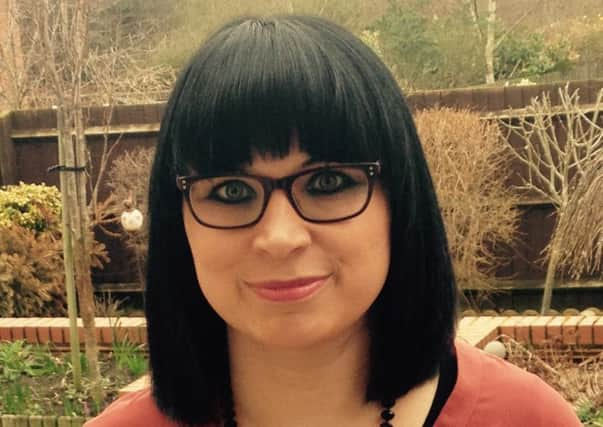Northamptonshire headteacher leads worldwide campaign over rare brain condition


Alison Willis, of Higham Ferrers, is now on the road to recovery after being affected by encephalitis, but wants to raise awareness about the condition ahead of World Encephalitis Day on February 22.
The 35-year-old, who is based at Rushton Primary School, began to feel unwell just before breaking up for last year’s Easter holidays.
Advertisement
Hide AdAdvertisement
Hide Ad“My GP said it was likely a muscular flu, so I should take painkillers, rest and drink plenty of fluids,” said Alison.
“Which is what I continued to do until April 2, 2015. I woke that morning totally unaware that I was soon going to be fighting for my life.”
She took a turn for the worse after a visit to the hairdressers – coming out in a cold sweat and losing the ability to speak.
Alison said: “I knew something was wrong and thought maybe it was a migraine. I wanted to get home and get to bed.
Advertisement
Hide AdAdvertisement
Hide Ad“I got out the car, staggered to the front door, blinking repeatedly to keep my vision in focus. I crawled upstairs and went to bed.”
With no memory of what followed, Alison would later learn that she had been rushed to hospital by her partner and a friend and had undergone a CT scan and a lumbar puncture, with eight doctors and nurses needed to hold her down.
“They asked whether I had taken Class A drugs because I was lashing out, groaning and not making any sense at all.
“A neurologist was called, took one look at me and told my partner to prepare for the worst.
Advertisement
Hide AdAdvertisement
Hide Ad“There was lots of head scratching and puzzled looks until the neurologist said that I could be suffering from encephalitis.”
Alison was treated with anti-viral drugs and eight hours later awoke to find her partner holding the intravenous wires - to prevent her ripping them out.
High doses of the treatment would then continue until, a week later, she was able to move around slowly.
“I came home and my slow steady recovery began,” said Alison. “I’m now nine months into my recovery and although there are lots of changes to my day-to-day life, I have to stand back and think how lucky I am that my friend and partner reacted quickly by calling for help, and that the hospital responded to my symptoms with medication, saving my life.
Advertisement
Hide AdAdvertisement
Hide Ad“My journey of recovery continues and, although I have a long way to go, I can see the improvements and with amazing support from friends and family and a lot of determination I will make a good recovery.”
Around 500,000 people are affected by encephalitis globally each year - regardless of their age, gender, ethnic origin or culture.
Without the proper treatment, up to a third will lose their life, while survivors can be left with a legacy of challenges brought about by the subsequent acquired brain injury.
Survivors of encephalitis can face an uncertain future as the condition can leave them with an acquired brain injury that means a return to work or education can be difficult.
Advertisement
Hide AdAdvertisement
Hide AdAbilities such as concentration, attention, thinking, judgement, memory and inhibition can also be affected, while there can be additional challenges such as epilepsy or fatigue.
Now Alison wants others to be aware of encephalitis by supporting World Encephalitis Day.
Led by The Encephalitis Society, this year’s event has seen the launch of the #RED4WED campaign with the public urged to “wear something red” on February 22 and raise awareness and funds for the charity.
The public can also vote for the winner in a Short Film, Digital Art and Photography Competition which has received entries from across the world by visiting www.worldencephalitisday.org
Advertisement
Hide AdAdvertisement
Hide AdDr Ava Easton, Chief Executive of The Encephalitis Society, said: “We launched World Encephalitis Day so people affected by this devastating condition can come together to raise awareness about encephalitis.
“We still have a long way to go to make the public and some health professionals aware of a condition which affects more people than Motor Neurone Disease and bacterial Meningitis and yet remains less well known.
“But by having survivors and their families come forward to show the human side of this ‘hidden disability’ can only be a good thing for informing the public about this condition.
“The sad fact is that not many people have heard of encephalitis unless it has happened to them, a family member or friend. We want to change that.”
Visit www.worldencephalitisday.org